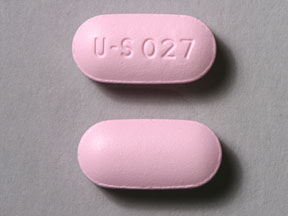Pentoxil Disease Interactions
There are 3 disease interactions with Pentoxil (pentoxifylline).
Pentoxifylline (applies to Pentoxil) cerebral or retinal hemorrhage
Major Potential Hazard, Moderate plausibility. Applicable conditions: Intracranial Hemorrhage
The use of pentoxifylline is contraindicated in patients with recent cerebral and/or retinal hemorrhage. Dose-related hemorrhagic effects can occur.
Pentoxifylline (applies to Pentoxil) cardiovascular dysfunction
Moderate Potential Hazard, Low plausibility. Applicable conditions: Ischemic Heart Disease, Arrhythmias, Cerebral Vascular Disorder
Although pentoxifylline has been used safely to treat peripheral arterial disease in patients with concurrent coronary artery and cerebrovascular diseases, there have been occasional reports of angina, arrhythmia, and hypotension. Controlled trials do not show a causal relationship; however, since pentoxifylline is a methylxanthine derivative, the possibility of these adverse effects should be considered. Therapy with pentoxifylline should be administered cautiously in patients with arrhythmia, coronary artery and/or cerebrovascular insufficiency.
Pentoxifylline (applies to Pentoxil) hepatic/renal
Moderate Potential Hazard, Moderate plausibility. Applicable conditions: Renal Dysfunction, Liver Disease
In patients with hepatic or renal impairment, the exposure to pentoxifylline and/or active metabolites is increased. The consequences of the increase in drug exposure are not known. Caution is advised. Care should be taken in dose selection, and it may be useful to monitor renal and hepatic function.
Switch to professional interaction data
Pentoxil drug interactions
There are 262 drug interactions with Pentoxil (pentoxifylline).
Pentoxil alcohol/food interactions
There is 1 alcohol/food interaction with Pentoxil (pentoxifylline).
More about Pentoxil (pentoxifylline)
- Pentoxil consumer information
- Check interactions
- Compare alternatives
- Drug images
- Side effects
- Dosage information
- During pregnancy
- Drug class: miscellaneous coagulation modifiers
- Breastfeeding
Related treatment guides
Drug Interaction Classification
| Highly clinically significant. Avoid combinations; the risk of the interaction outweighs the benefit. | |
| Moderately clinically significant. Usually avoid combinations; use it only under special circumstances. | |
| Minimally clinically significant. Minimize risk; assess risk and consider an alternative drug, take steps to circumvent the interaction risk and/or institute a monitoring plan. | |
| No interaction information available. |
See also:
Further information
Always consult your healthcare provider to ensure the information displayed on this page applies to your personal circumstances.


